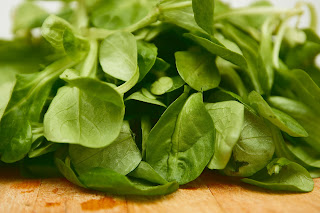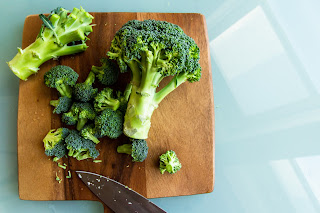Protein Beyond Meat: Benefits to Non-Meat Protein Sources
Spinach - While spinach is often thought of as being just another leafy green with iron and vitamins in it, there is more to it than meets the eye. Spinach is a great source of iron, and vitamins (it is high in vitamins A, C, and K, as well as harder to find vitamins such as B6, B9, and E), but it also provides fibre and calcium. Calcium in particular is especially important for vegans, who do not eat dairy products or eggs, where calcium is found in higher quantities, and which is necessary to maintain good bone health and nervous system signalling throughout the body. Additionally, spinach is full of antioxidants, which help to stop oxidative cell damage and protects from chronic conditions like heart disease.
Photo by Louis Hansel on Unsplash
Legumes - when faced with the question by carnivores about ‘what do you eat instead?’ legumes are often the easiest and most satisfying answer. Not only are legumes (a food group that encompasses all beans and peas) a fantastic, rich source of plant-based protein, but cooked beans (particularly red kidney beans, lima beans, and chickpeas) are also high in iron. In addition to legumes being great for protein and iron, most also contain a high number of B vitamins, such as B2 and B9 that are found in legumes such as lentils and peas. Though we often discuss peas as if they are a vegetable, they are part of the legume family and contain a large amount of protein. Peas are tiny powerhouses of nutrients - boasting a large amount of protein, iron, fibre, manganese, carbohydrates, and vitamins A, C, and K, as well as those ever-needed B vitamins.
Photo by Tijana Drndarski on Unsplash
Fortified Cereals - Fortified cereals are those with added vitamins and minerals, designed to help us all get closer to achieving the right daily intake of all our necessary nutrients. Breakfast cereals are often fortified, especially as they are typically eaten by both adults and children. Although other fortified foods such as milk and juices are also useful for upping your intake, fortified cereals are typically the most popular. Many kinds of fortified cereal have the following vitamins and minerals added to them: Vitamin A, Vitamins B1, B2, B3, B6, and B12 (which is essential for vegans, who can’t get B12 from animal food products), vitamin D, calcium, iron, and zinc. Some fortified cereals can provide your entire daily allowance of some minerals, depending on the type of cereal and the recommended daily intake of particular minerals.
Ultimately, there are many more options to help vegans and vegetarians
get their recommended daily allowance of protein, iron, and other nutrients
that meat-eaters gain from animals than we have listed here, but these are some
of the key foods that can help you get started in making sure that a dietary
change does not mean a nutrient deficiency. Everyone, regardless of diet, needs
the same amount of the same nutrients in their bodies for the body to perform
at its best, and protein, as well as many key micronutrients, can often get
overlooked or under-consumed by newer vegans and vegetarians, while meat-eaters
can sometimes be blinded into thinking that protein and iron starts and ends
with meat consumption.




Love this! My go to to make sure I’m full is chickpeas because they are super filling even in smaller amounts.
ReplyDelete